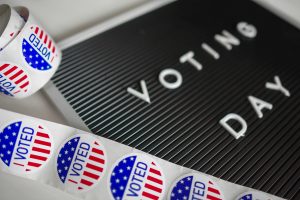Mallory Harrington on September 30, 2024
- Blake R. Silver’s (Associate Professor of Sociology at George Mason University) new book, Degrees of Risk: Navigating Insecurity and Inequality in Public Higher Education, examines the ways in which colleges and universities create uncertainty for students. In an interview with The Conversation, Silver describes that many universities experiencing funding cuts create flexible programming and offer a range of optional resources. “Though abundant choices and flexibility may seem broadly appealing, research shows that they can make it difficult to anticipate next steps, and it’s easy for students to get lost,” Silver explains. “This most directly impacts students whose families are less familiar with navigating college and those with few economic resources to recover from missteps.”
- GW Today interviewed Elizabeth Vaquera (Associate Professor of Sociology at George Washington University) about how Vice President Kamala Harris and former President Donald Trump are appealing to Latino voters in the upcoming election. Vaquera explains that we very rarely see politicians considering the diversity of Latino populations and focusing solely on immigration is a poor strategy to win Latino votes. “For Latino voters, it’s not all about immigration. The majority of Latinos in the United States are not even immigrants themselves,” Vaquera notes. “They are worried about the same issues as everybody else. The economy is always at the top of their concerns. Jobs, education and health care are all very important to them. Abortion has become a singular issue for some in the Latino community.”
- Brooke Harrington (Professor of Sociology at Dartmouth College) appeared on C-SPAN to discuss offshore finance, a system in which countries “sell secrecy to very rich people,” allowing them to protect assets and/or hide money from tax authorities. Harrington describes how many nations that are struggling financially (especially smaller island nations that were with a history of colonization) participate in the global finance system as a way to boost their economies. However, offshore finance tends to end up “undermining democracy and ultimately hollowing out the economy of these countries.” Harrington’s recent book, Offshore: Stealth Wealth and the New Colonialism, explores this system in-depth.
- The New York Times ran a story on the emerging support of moderate republican lawmakers from labor unions. Jake Rosenfeld (Professor of Sociology at Washington University in St. Louis) commented that recent pro-worker rhetoric from prominent Republicans (including former President Trump) “might be giving cover to more down-ballot Republicans” to adopt pro-union stances. “Ten or 15 years ago, if you staked out a real pro-union position as a G.O.P. lawmaker, you were going to be hearing from the Chamber of Commerce or the National Association of Manufacturers,” Rosenfeld explained.
- Parker Muzzerall (PhD Candidate in Sociology at the University of British Columbia) wrote an article for The Conversation about oil and gas workers’ responses to Canada’s efforts to achieve a net-zero energy economy. Muzzerall’s work reveals that many oil and gas workers have a strong sense of regional pride for oil and gas communities and believe that “the federal government and Canadians in other parts of the country do not care about them and their feelings of being excluded from Canada’s vision for the future.”
- Ryan Larson (Assistant Professor of Criminology at Hamline University) appeared on MPR to discuss new research on the mental health effects of the police murder of George Floyd on Minneapolis residents. The study found that Black residents had more negative mental health consequences than White and Latino residents. “Often in epidemiological studies, advantage, say, wealth or socioeconomic status will often serve as a buffer against health problems,” Larson explained. However, in this case, “Black residents living in the most disadvantaged as well as the most advantaged spaces in Minneapolis both saw a pretty similar increase in mental health diagnoses across the city.”







Comments 1
Ken Den — October 4, 2024
Thanks for this info its really helpful.
Flying Together